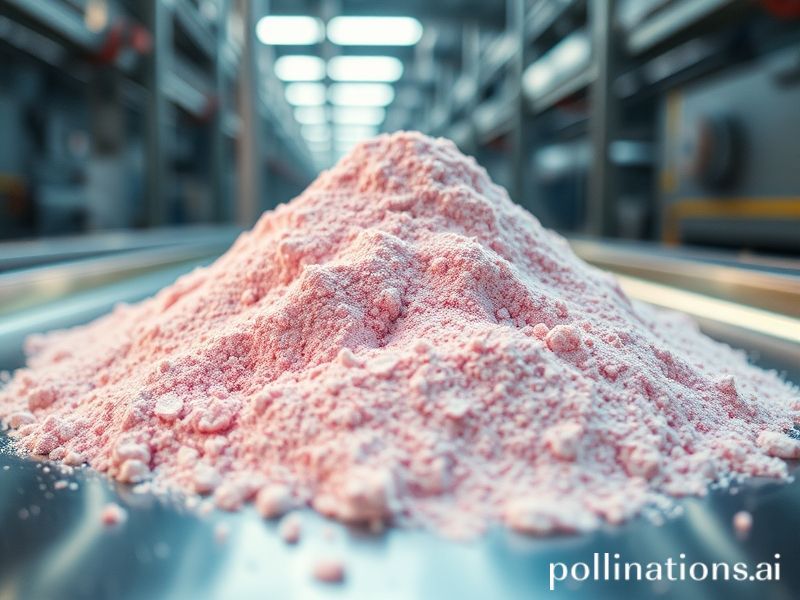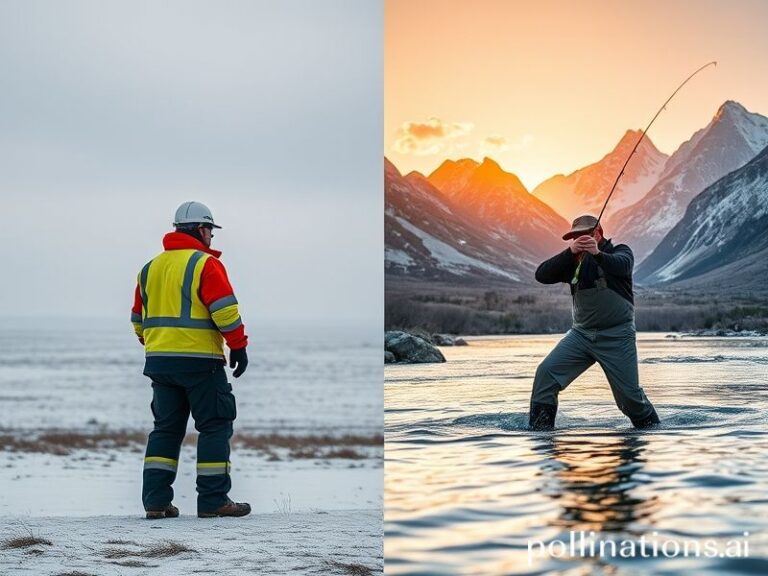America’s Rare Earth Gamble: Inside the Desert Mine That Could Reshape Global Tech Supply Chains
**The Rare Earth Reality Show: How MP Materials Became America’s Great Geopolitical Hope**
*By our correspondent, still recovering from covering less glamorous forms of mining*
LAS VEGAS – In the shadow of the city where fortunes are made on the turn of a card, MP Materials operates a mine that represents perhaps the biggest gamble in modern geopolitics: the idea that America can actually produce something China has dominated for decades. The Mountain Pass facility, looking like a giant’s sandcastle project in the Mojave Desert, produces roughly 15% of the world’s rare earth elements – those obscure metals that keep your smartphone from becoming an expensive paperweight and your electric vehicle from becoming an expensive driveway ornament.
The international significance of this operation would be almost comical if it weren’t so strategically vital. Here we have the world’s largest economy discovering, rather belatedly, that controlling the building blocks of modern technology might actually matter. It’s rather like realizing you should probably own a stove after years of depending on your neighbor’s kitchen.
China currently processes about 85% of global rare earths, giving Beijing roughly the same leverage over high-tech manufacturing that a bartender has over a wedding reception. This uncomfortable reality has prompted the usual scramble of panic, investment, and political posturing that characterizes any Western response to discovering strategic vulnerability. The European Union, never one to miss an opportunity for collective hand-wringing, has identified 30 critical raw materials while simultaneously making it nearly impossible to mine any of them within its own borders – a neat trick of bureaucratic gymnastics that would impress even the most cynical observer.
MP Materials’ resurrection of Mountain Pass – previously bankrupt and abandoned like so many American industrial dreams – represents either a triumph of strategic thinking or a testament to human optimism, depending on your caffeine levels. The company has attracted $700 million in Pentagon funding, because nothing says “free market” quite like military-industrial complex investment. They’re building processing facilities in Texas, where everything is bigger, including the promises about achieving supply chain independence by 2025.
The global implications ripple outward like a stone dropped in a geopolitical pond. Japan, still smarting from that time China cut off rare earth exports during a territorial dispute, has been stockpiling these materials with the dedication of a doomsday prepper. South Korea, whose entire economy depends on electronics exports, watches these developments with the intensity of a poker player holding a mediocre hand. Meanwhile, developing nations from Myanmar to Madagascar have discovered that their dirt might actually be worth something, leading to the kind of resource rush that historically works out brilliantly for local populations (please read that with appropriate sarcasm).
The environmental irony deserves special mention. Green energy advocates championing electric vehicles and wind turbines often develop selective blindness about the mining required for their eco-utopia. Mountain Pass’s operations create radioactive waste – a delightful byproduct that has to be stored somewhere, though preferably not in anyone’s backyard who can afford lawyers. The company’s website features majestic photos of desert landscapes that carefully avoid showing the actual mining operations, proving that public relations professionals can indeed perform miracles.
As nations scramble to secure their technological futures, MP Materials stands as both hero and hostage to fortune. Their success would represent a rare American industrial victory; their failure would simply confirm what many international observers already suspect about Western manufacturing decline. The stock price swings like a pendulum powered by geopolitical anxiety and Twitter commentary from people who couldn’t tell neodymium from a Neopet.
In the end, Mountain Pass represents our modern paradox: the abstract digital economy still depends on very physical holes in the ground, dug by people who will never own the devices their labor enables. It’s globalization’s circle of life, just with more heavy machinery and the occasional radioactive spill.







